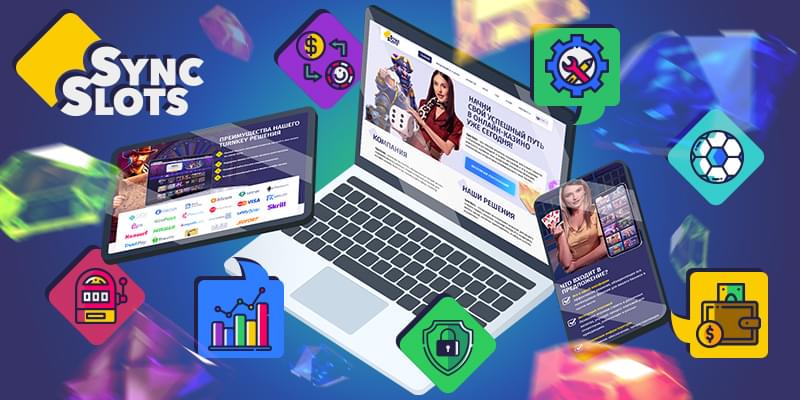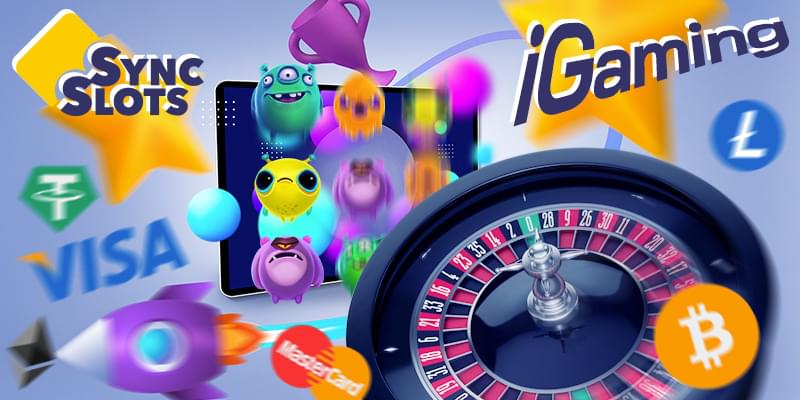The Forecasts for Online Gaming in 2024

The New Year is always a time for reflection on what awaits us in the future. For the gaming industry, 2024 promises to be filled with events, innovations, and new trends. Let's consider several forecasts for online gaming this year.
1. Rise of Virtual Reality:
With each passing year, virtual reality becomes more accessible and captivating. It is expected that in 2024, we will see even more games developed specifically for VR platforms, as well as improvements in virtual reality technologies, allowing players to immerse themselves even deeper into the gaming world.
2. Development of Cloud Gaming Services:
Cloud gaming services have long been present in the market, but in 2024, they may become even more popular. This will allow players to play their favorite games on any device with internet access, without spending time on downloading and installing games.
3. Growth of Esports:
Esports continues to gain momentum, evolving from a hobby into a professional sport. In 2024, esports may become even more popular and recognized, attracting more attention from sponsors, viewers, and participants.
4. Gaming Streaming Platforms:
Gaming streaming platforms such as Twitch and YouTube Gaming will continue to grow and evolve. In 2024, we may see the emergence of new innovations and opportunities for streamers and their viewers.
5. Games Involving Artificial Intelligence:
Artificial intelligence is becoming increasingly prevalent in the gaming industry. In 2024, we may see the development of games where artificial intelligence plays a key role, whether in managing characters or creating dynamic gaming worlds.
6. Combatting Cyberattacks and Fraud:
With the growing popularity of online games, the number of cyberattacks and fraud in the gaming environment is increasing. In 2024, game developers and platforms will need to actively combat these threats by implementing new security technologies and enhancing the security of gaming systems.
These forecasts are just a few examples of what the gaming industry may expect in 2024. However, one thing is certain: the future of online gaming looks bright and exciting, with plenty of opportunities for players, developers, and investors alike.

In the realm of iGaming, where pixels turn into currency and every spin of the wheel evokes particular
excitement,
significant transformations are underway. It's no longer just about credit cards and traditional payment
methods.
Cryptocurrencies have penetrated the financial sphere, and they're already making their mark in the
casino arena. The
impact of cryptocurrencies promises to be truly revolutionary.
But what makes cryptocurrencies so popular in iGaming? Let's delve into the factors driving this trend:
Decentralized Revolution
Cryptocurrencies like Bitcoin and Ethereum are decentralized forms of currency, operating on blockchain
technology. This
means players have direct control over their funds, without intermediaries or third-party agents. No
longer do they need
to await bank approvals or deal with credit card delays. Instant deposits and withdrawals become the
norm, providing a
seamless gaming experience.
Enhanced Security and Transparency
Blockchain technology ensures a high level of transparency, with each transaction recorded in an
immutable ledger
accessible to all. This reduces the risk of fraud and chargebacks, protecting both players and
operators. Additionally,
robust cryptographic protocols safeguard confidential data, mitigating the risk of cyberattacks.
Global Reach, Game Without Borders
Unlike traditional payment methods, cryptocurrencies aren't bound by geographical constraints. This
allows players from
around the world to participate in the iGaming realm, opening up new markets and opportunities for
operators, creating a
truly global gaming arena.
Anonymity and Confidentiality
For some players, privacy is paramount. Cryptocurrency transactions offer a certain level of anonymity,
ensuring the
confidentiality of financial activities. However, it's important to strike a balance between anonymity
and adhering to
responsible gaming practices and anti-money laundering/ know your customer (AML/KYC) rules.
Innovative Frontier
As blockchain technology continues to evolve, new gaming possibilities emerge in the world of iGaming.
Cryptocurrencies
can be used to prove the fairness of gaming algorithms, provide in-game rewards, and even create unique
avatars based on
NFT technology. This opens up a new gaming experience for users and redefines the iGaming landscape
itself.
The Future of Cryptocurrencies in iGaming
While the undeniable popularity growth of cryptocurrencies in iGaming persists, there are still some
technical and legal
obstacles to overcome. However, the industry is actively adapting, creating more user-friendly wallets,
integrated
platforms, and working towards resolving regulatory issues.
Overall, the future of cryptocurrencies in iGaming looks promising. With advancing technologies and
growing popularity,
cryptocurrencies are set to become an integral part of the iGaming industry. Players will enjoy faster,
safer, and more
transparent transactions, while operators will tap into new markets and unlock innovative gaming
opportunities. The game
is changing, and cryptocurrency is ready to roll the dice.

Gambling and sports betting have become popular forms of entertainment and beloved hobbies in many
countries. With the
advancement of technology and the Internet, these pastimes have naturally transitioned into the online
space. The online
gambling market is closely tied to the development of web technologies, leading to the emergence of the
term "iGaming."
iGaming has gained popularity by transitioning into the virtual environment, providing players with
constant access to
online games.
The term "iGaming" can be used in both narrow and broad senses. In the narrow sense, it refers to online
betting in
gambling games using electronic means. Thus, the "i" in iGaming stands for the Internet, and "Gaming"
denotes the gaming
industry.
In a broader sense, iGaming encompasses gambling activities such as casinos, sports betting, totalizers,
lotteries,
bingo, and card games. It also includes various companies providing online verticals and software for
this industry.
Games dependent on chance, such as online casinos, sports betting, and lotteries, fall into one
category. The second
category includes games where the outcome depends on the player's skills, such as poker, blackjack, and
chess.
There is some uncertainty about whether to include the second category in iGaming, but representatives
from both
categories are often encountered at iGaming events.
The history of iGaming began with the development of technology, urbanization, and the widespread use of
the Internet.
Key events include the enactment of the Free Trade and Processing Zone Act in 1994, which allowed the
issuance of
licenses for online casinos. In 1996, the Kahnawake Gaming Commission was established, and by 2005, the
United Kingdom
legalized the operation of gambling sites with the Gambling Act.
The regulation of online gambling varies in different countries as legislators seek to establish their
rules to control
the activities of both local and foreign operators providing iGaming services.
iGaming operators serve as managerial figures in the gambling business, responsible for operational
activities,
marketing, and providing end-users with the opportunity to place online bets. In many countries
worldwide, the
operations of online gambling operators are subject to legalization and regulation by the state.
Countries such as
Belarus, the Czech Republic, Estonia, Sweden, Finland, and Norway are considered regulated markets,
where local licenses
are required to conduct business. Similar to land-based gambling establishments, providers of online
gambling games must
hold licenses to offer services to players in specific countries. An example is Lithuania, where
operators need to
establish land-based gambling facilities to obtain permission for launching a website for gambling.
In certain countries, online gambling may be either entirely prohibited, as in Israel, or permitted and
regulated, as in
the Netherlands after 2021.
The landscape of the gambling industry has undergone significant changes due to the COVID-19 pandemic.
The closure of
land-based casinos, bookmakers, and the suspension of sports events led to an increase in demand for
online gambling. In
2021, the global market for online gambling games was valued at over 70 billion US dollars, and this
figure is expected
to continue growing.
The evolution of mobile technologies makes iGaming more appealing to players, offering a wide range of
themes,
high-quality graphics, and modern sound effects.
Virtual and augmented reality (VR/AR) technologies are also contributing to the iGaming industry.
Evolution, a leading
content provider for live casinos, explores the possibilities of using VR technologies, providing
players with new
experiences in online gambling.
Concerning the future development of the industry, blockchain technology is becoming increasingly
significant.
Cryptocurrency casinos and blockchain casinos allow players to conduct transactions using
cryptocurrencies, ensuring
maximum anonymity and eliminating intermediaries. This technology also guarantees the fairness of game
results and the
swift processing of transactions.
Live streaming and social media have a significant impact on the iGaming industry, attracting increasing
attention from
users. Streaming has become a popular method of content delivery, where streamers showcase the real-time
gaming process.
This allows viewers to experience key moments of the game live and place bets alongside the streamer.
Streamers actively choose slots with frequent bonuses and high payouts, making their broadcasts more
entertaining. This
practice draws new users to online casinos, especially when streamers are partners with operators.
Streamers often
provide useful information on their pages, including operator ratings and promotional materials.
Gamification, the incorporation of gaming elements into online casinos, is aimed at attracting a younger
audience. This
includes character selection, quests, and various rewards for achievements. Gamification enhances player
retention by
satisfying their needs for variety and motivation.
Virtual and augmented reality technologies, as well as the use of HTML5 and Unity in slot development,
make iGaming more
accessible and appealing to players. Along with the development of 5G technology, game loading speeds
improve,
positively impacting the user experience.
The iGaming industry continues its rapid development, supported by various technological and social
trends.

Dazzling Advancement
July 2023 witnessed an exciting event in the realm of online gambling as the new website, SyncSlots.com, was launched. The company offers a unique and reliable solution called #turnkeysolution for online casinos and bookmakers, allowing them to join the current gaming boom.

New Innovative
SyncSlots is excited to present its new iGaming platform - a unique solution that combines a wide selection of games, support for various currencies, and a flexible management system. Our team of experts has worked tirelessly to create a high-quality and innovative solution that will help your online casino attract more players and reach new heights of success. We invite you to become part of our growing network and journey together to the peaks of success in the iGaming world. Contact us today to learn more about our Turnkey solution and start your successful story in the online casino industry.